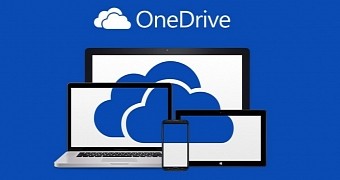Microsoft’s OneDrive cloud storage service is turning 10 this week, and the company has used this occasion to publish an anniversary post on its blog and highlight some of the milestones the service reached in the last decade.
Originally called Windows Live SkyDrive, and then referred to as SkyDrive, the service was renamed to OneDrive following a trademark dispute with British Sky Broadcasting Group in early 2014.
OneDrive has evolved a lot since launch, but the most controversial change that was made took place last year when Microsoft decided to cut the amount of free space to just 5GB. While the software giant did allow users to retain the 15GB free storage by claiming it on a dedicated website, new users are only getting 5GB without a fee, while paid storage can go up to 5GB for $99.99 per year (1TB each for 5 users).
Fast growth
Microsoft says OneDrive is growing at a fast pace, and reveals that 115 million customers, including 85 percent of the Fortune 500, use OneDrive every day. Furthermore, OneDrive for Business usage has more than doubled in 2016, the firm says.
“In the past year, we focused particularly on enhancements that make OneDrive more collaborative, more intelligent and more secure. We released over 100 features that enable both consumer and business scenarios,” the company notes.
As far as the future goes, OneDrive is set to receive several major improvements, including Files On-Demand, which is more of a modern version of the placeholders feature that was introduced in Windows 8.1 and then removed in Windows 10.
“And this is just the beginning. Over the next few months, we’ll release incredible new mobile features, innovative ways to manage and secure your content, and smarter ways to make sharing and collaboration better than ever,” the company continues, once again teasing major mobile improvements.
It remains to be seen if Windows phones will also get these mobile updates given the company’s increased focus on Android and iOS.

 14 DAY TRIAL //
14 DAY TRIAL //